People
 |
Meenakshi A History South Asia; materiality; history of technology; environmental history; histories of the built environment. |
|
 |
Kamil Ahsan History of Science and Medicine environmental history; coral reefs; history of biology; Pacific history. |
|
 |
Abdullah Alharoun History Petromodernity, State Capitalism, Environmental and Social History, Energy Sovereignty, Middle East History |
|
 |
Allegra Ayida History Longue durée; Environmental and maritime history; Niger Delta; oil politics. |
|
 |
Estrella Castillo History of Science and Medicine Indigenous science and technology studies; Indigenous religions under the law; hikuri Peyote cactus; anticolonial and decolonial movement; materiality of psychedelics |
|
 |
Jacquelyn Davila History Borderlands and agrarian history; water management; property regimes; sovereignty |
|
 |
Diya Deviah History Histories of Capitalism, Law, Environmental History, Material History, Mining and Extraction, STS, Commodity Frontiers |
|
 |
Breeanna Elliott History of Science and Medicine ethnobotany; oral history; gender; Indian Ocean slave trade networks; traditional medicine and healing systems in Madagascar and Tanzania. |
|
 |
Kristine Ericson History of Science and Medicine Environmental history, STS, history of technology, history of design |
|
 |
Martha Guerrero Badillo History U.S. 20th-century history; Latin America; climate-driven migration; rural sustainability; indigenous migrants; U.S. immigration policy |
|
 |
Molly Harris History public health history; environmental history; twentieth century US history; environmental and public health politics; corporate pollution. |
|
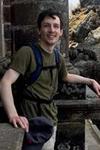 |
Peter Haskin History Latin American history; cartography; religious history. |
|
 |
Chelsea Jack Anthropology ethnography; history; U.S. farming; “industrial hemp”; experimental agriculture; bioethics.
|
|
 |
Henry Jacob History Interoceanic transit; environmental governance systems; histories of colonization and conservation; tropical and polar regions; sovereignty |
|
 |
Heidi Katter History Native American sovereignty and territoriality; Euro-American exploration; spatial history; settler colonialism; natural resource extraction |
|
 |
Caitlin Kossmann History of Science and Medicine global histories of conservation and environment; aesthetics and science; history of the life sciences; meanings of nature / the natural in the history of science. |
|
 |
Dante LaRiccia History Environmental governance; international and environmental systems; history of science; political ecology. |
|
 |
Charlotte Leib History US history; early American environmental history; landscape history; histories of architecture, landscape architecture, planning & urbanism; urban studies; geography; environmental justice. |
|
 |
Oliver Lucier History of Science and Medicine history of geography; history of the Earth sciences; environmental history.
|
|
 |
Camila Marcone Medieval Studies climate history; Late Medieval Iberia; early modern Latin America; digital humanities; environmental history. |
|
 |
Alberto Martinez Garcia Architecture Material history, Southeast Asia, Spanish Empire, Environmental activism, representation |
|
 |
Natalie McDonald History U.S. West; American Empire; historical memory; public space; borderlands
|
|
 |
Thomas Monaghan History sugar in Japan; society and the environment; commodities and trade; technology transfers; local history; agricultural experiments; island societies; Brazil and the Caribbean. |
|
 |
Mikhail Moosa History African history; South African history; Environmental history; Energy history; Social history
|
|
 |
Patience Neshiwa History African History, Environmental History, Drought, Climate Change, Colonialism |
|
 |
Harshavardan Raghunandhan History Modern South Asia; political economy; environmental history; public health. |
|
 |
Oliver Riskin-Kutz History Colonial and imperial environmental history, extraction, commodification, animal history |
|
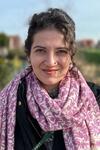 |
Palvasha Shahab History South Asia, Environmental History, Legal History, Indus Delta, Commodification, Empire |
|
 |
Dennis Song History of Science and Medicine Science and technology studies, philosophy of history, philosophy of technology, history of planetary sciences, international fiscal economics and policies, spatial monitoring technology |
|
 |
Marcus Yee History Southeast Asia; environmental history; Science and Technology Studies, Cold War, urban history |
|
 |
Parker Zane Near Eastern Languages and Civilizations Mesopotamian intellectual history; environmental history; human-environment relations; history of meterology; environmental archaeology. |
|
 |
Xinyue Zhang History Modern China and East Asia; Environmental History; Science and Technology Studies; World War II; Social History |
 |
Anthony Acciavatti Diana Balmori Assistant Professor of Architecture History of Science and Technology; Landscape; Architecture; Agriculture; Infrastructure |
|
 |
Alvita Akiboh Assistant Professor of History United States history; U.S. imperialism; Caribbean; Pacific; material culture; identity; disaster studies |
|
 |
Sunil Amrith Renu and Anand Dhawan Professor of History Modern South Asian, Southeast Asian and Indian Ocean history; the history of migration and diasporas; environmental history, especially the history of water and climate; the history of port cities |
|
 |
Laura Barraclough Sarai K. Ribicoff Associate Professor of American Studies Ethnographic and spatial analyses of urban life and culture; geography; ethnicity and culture; environmental justice |
|
 |
Paola Bertucci Associate Professor of History and History of Medicine; Assistant Curator Peabody Museum Science and medicine in the age of Enlightenment: the involvement of the human body in electrical experiments, the material culture of science, science and secrecy |
|
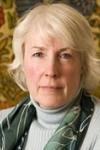 |
Carol Carpenter Senior Lecturer, School of Forestry and Environmental Studies Social ecology, sustainable development and conservation, gender in agrarian and ecological systems. |
|
 |
Deborah Coen Professor, Chair of the History of Science & Medicine Program History of the modern physical and environmental sciences; Central European intellectual and cultural history |
|
 |
Amity Doolittle Senior Lecturer and Research Scientist, School of Forestry and Environmental Studies Property rights and control over natural resources, political ecology, environmental history of Southeast Asia, Latin America, and New Haven |
|
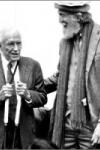 |
Michael Dove Margaret K. Musser Professor of Social Ecology and Anthropology; Dep Dir Climate & Energy Inst, Curator Peabody Museum Environmental anthropology, climate and society, South and Southeast Asia |
|
 |
Fabian Drixler Professor of History Cultural history and historical demography, climate, Japanese and East Asian history |
|
 |
Paul Freedman Chester D Tripp Prof History Medieval social history, the history of Spain, comparative studies of the peasantry, and history of food and cuisine. |
|
 |
Jay Gitlin Lecturer in History History of the French in the Mississippi Valley and the Great Lakes, American Indian history, the history of the American West, Canadian history, and the suburbanization of America. |
|
 |
Robert Harms Henry J. Heinz Prof History & African Studies African history, environmental history, colonialism, history of the slave trade. |
|
 |
Hi'ilei Hobart Assistant Professor of Native and Indigenous Studies Settler colonialism; environment; Indigenous sovereignty; food studies; cultural memory; Hawai’i |
|
 |
Benedict Kiernan A Whitney Griswold Prof of History Southeast Asian history, environmental History of Viet Nam, history of genocide, climate, agriculture |
|
 |
Joseph Manning William K & Marilyn Milton Simpson Prof of Classics & History; Sr Rsrch Scholar Law Sch History of the Ancient world, legal and economic history, climate history |
|
 |
Alan Mikhail Professor of History Environmental history of the early modern and modern Middle East, history of human-animal relations, irrigation and natural resource management, agrarian history |
|
 |
Peter Perdue Professor Emeritus of History Modern Chinese social and economic history, environmental history, history of frontiers, and world history. |
|
 |
Joanna Radin Associate Professor of History of Medicine and History and History and Anthropology History of biology, medicine, and anthropology since 1945; scientific expeditions, biomedical ethics, human subjects research, collections, and laboratories; history of global health; biomedical technology
|
|
 |
William Rankin Associate Professor of History The physical and earth sciences since the mid-19th century; military, industrial, and governmental science; history of cartography; science and architecture; visual studies; environmental history
|
|
 |
Carolyn Roberts Assistant Professor, History of Science and Medicine & African American Studies Fields of interest:
Medicine and slavery in the Atlantic world; race, medicine, and science; history of medicine in Africa and the African diaspora; health and protest in African American history; non-Western medicine and global health |
|
 |
Elihu Rubin Associate Professor of Architecture and of American Studies Built environments of nineteenth- and twentieth-century cities, the history and theory of city planning, urban geography and cultural landscape, transportation and mobility, architectural preservation and heritage planning, and the social life of urban space |
|
 |
Paul Sabin Randolph W. Townsend Professor of History United States environmental history, energy politics, environmental humanities, political, legal, and economic history |
|
 |
Stuart Schwartz George Burton Adams Professor of History History of colonial Latin America, especially Brazil, the history of Early Modern expansion, history of hurricanes and other natural disasters |
|
 |
Kalyanakrishnan Sivaramakrishnan Dinakar Singh Prof of India & South Asia Studies, Prof of Anthropology and Sch of For & Env Stu Environmental history and political anthropology of forests, agriculture, human-animal relations, and urban environments in India |
|
 |
Harvey Weiss Professor of Near Eastern Archaeology in Near Eastern Languages and Civilizations and Anthropology and Forestry & Environmental Studies Mesopotamia, early agriculture, cities and empires; Holocene paleoclimatology and environmental change. |
|
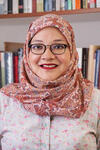 |
Nurfadzilah Yahaya Assistant Professor of History History of Southeast Asia; History of Indian Ocean; History of Islamic World; Environmental History; History of Infrastructure; Legal History |
 |
Sahar Bostock Postdoctoral Associate, Program in Agrarian Studies Middle Eastern history, environmental history, development, colonialism, deserts, Palestine/Israel, science and technology studies |
|
 |
Kirke Elsass Postdoctoral Affiliate, Yale Environmental Humanities History of environment and technology; Urban mobility; Domestic culture; Carceral architecture; Green infrastructure
|
|
 |
Noah Ramage Postdoctoral Associate, History Native American history, U.S. West, Indigenous democracy |
 |
Paul Burow FES and Anthropology land and wildlife conservation; multi-species entanglements; settler colonialism; Native North America; environmental humanities. |
|
 |
Yuan Chen History Environmental history; East Asian history; Middle Period; conquest dynasties; forestry and militarization; food and culture; urban ecology; frontier and borderland. |
|
 |
Camille Cole History Camille Cole’s dissertation uses a group of Ottoman and Iranian notables – tribal leaders, landowners, and entrepreneurs – as nodes through which to investigate the making of multi-imperial space in what is now southern Iraq. The Ottoman, British, and Qajar states all pursued imperial expansion and consolidation in the region roughly bounded by the Tigris-Euphrates-Karun river basin south of Baghdad. In addition to jockeying for political influence with local notables, all three states carried out projects of modernity, including remaking regional trade with steamships and linking the control of people and land with new land tenure regimes. Their existence alongside powerful local actors forced the three states to adjust both the goals and the application of these projects to fit the social, cultural, and environmental characteristics of southern Iraq. In the process, they created a unique configuration of modernity: a multi-imperial space of overlapping sovereignties and power brokers. |
|
|
Sigma Colon American Studies Sigma Colón studies the intersections of spatial analysis, environmental, and cultural politics from the late 19th through the 21st century. Her dissertation, “Rivers Seen and Unseen,” examines popular accounts of river regions as vehicles for representing and altering the exploitation of people and rivers. In addition to her work on river systems, as a member of the Yale Working Group on Globalization and Culture she has published work on invasive species as a kind of occupation tied to racialized geographies, as well as on the political economy of nature that examines environmental degradation and reparation for that destruction as liabilities and as forms of indebtedness within the context of the Global North-South divide. |
||
 |
Liana DeMarco History of Science, History of Medicine history of medicine; environmental history in the Americas; transnational history of health culture in Cuba and the Lower Mississippi Valley. |
|
 |
Keri Lambert History Keri Lambert is a PhD student specializing in twentieth-century African and environmental history. Her dissertation, “Planting Trees, Tapping Ghanaians: Cultivating Rubber and Nationhood in 20th Century Ghana,” will explore the ways in which farmers, the state, and transnational companies consolidated land, labor, and capital to develop rubber plantations in colonial and post-colonial Ghana. The rubber industry presents a particularly useful case to observe how Ghanaians in rural areas of the peripheral Western Region have engaged with hegemonic institutions and resources – both natural and social – in dynamic ways throughout political and economic reforms during the colonial and post-colonial eras. She is advised by Bob Harms, and her dissertation committee includes Paul Sabin, Dan Magaziner, and Jeffrey Ahlman (from Smith College). |
|
 |
Adrian Lerner Patron History Environmental history; Latin American history; the history of public health; social and political history |
|
 |
Joanna Linzer History mountains; environmental history; Tokugawa Japan; early modern Japan. |
|
 |
Timothy Lorek History Tim Lorek is a PhD candidate in the Department of History. His dissertation, “Developing Paradise: Agricultural Science in Colombia’s Cauca Valley, 1927-1967” examines a long history of agronomy and environmental changes in a Latin American tropical river valley. He is also co-organizer of the international conference “Traveling Technocrats: Experts and Expertise in Cold War Latin America,” held at Yale in October of 2016, and coordinator of Yale’s Agrarian Studies program for the 2016-17 academic year. His dissertation committee includes Gilbert Joseph (Chair), Paul Sabin, Stuart Schwartz, Marcela Echeverri, and James Scott. |
|
 |
Sarah Pickman History material culture; extreme environments; history of exploration, polar regions; history of anthropology; British and American imperialism; indigenous approaches to environment. |
|
 |
Taylor Rose History nineteenth and twentieth century US environmental history; North American West; race and identity; rural space and place; federal land management; transportation infrastructure. |
|
| Paul_Sabin | ||
 |
Ashanti Shih History of Science, History of Medicine Ashanti Shih was born and raised in Honolulu, Hawai‘i. In 2011, she graduated from the University of California, Berkeley with a bachelor’s degree in History and Art Practice. Her undergraduate thesis explored the history of Japan’s nuclear energy program, focusing on the controversial use of American nuclear fuel in the 1970s. At Yale, Ashanti studies the history of ecology and environmental history in the Pacific region. Her dissertation, tentatively titled, “Alien Ecologies: Conservation and Identity in Twentieth-century Hawai‘i,” focuses on the history of “species mixing” and invasion biology in the islands. Ashanti will use the national parks as a case study to explore the relationship between ecological categories, conservation practices, and the people of Hawai‘i. Her research and travel has been supported by the Richard U. Light Foundation, the MacMillan Center, the National Science Foundation, and the Bogaty/Crowley Fund for Japanese History and Japanese Studies. Ashanti is committed to building community around social justice issues. She is active in the Asian American community at Yale and helped found the History, Science, and Justice Collective. She chairs the Earth and Environment Forum (EEF) of the History of Science Society, and contributes to the following online initiatives: Teach311.org, and Seeds: New Research in Environmental History. History of ecology, environmental history, Asian American history, Pacific Islander studies, Asian studies, STS, visual studies, colonialism and occupation. |
|
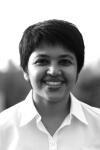 |
Ila Tyagi American Studies and Film Studies My dissertation, tentatively titled “Seeing the Invisible: The American Oil Industry in Moving Images,” addresses visual solutions to the problem of representing phenomena that elude the eye. Over four chapters, I examine drones equipped with cameras monitoring the enormous spatial sprawl of oilfields in Alaska; guerrilla documentaries looking past BP’s attempts to conceal the 2010 Deepwater Horizon oil spill in the Gulf of Mexico; animated sequences in Cold War-era sponsored films that depict underground drilling; and early actualities capturing the new appeals to smell, taste, and touch posed by an industry still in its infancy. By being attentive to how moving images extend human vision, I argue, we better understand how they are harnessed as an ideological tool. |
|
 |
Teona Williams History and African American Studies US environmental history; political ecology; race and ethnic studies; environmental justice; digital humanities; African American history. |
|
 |
Tony Yeboah Graduate Student, History Africa: West Africa, architecture, the built environment, urban planning, palaceology |
 |
John Faragher Howard R Lamar Professor of History and American Studies History of the American West, frontiers, and borderlands |
|
 |
Dolores Hayden Professor Emeritus of Architecture and Professor of American Studies History of American landscapes and the politics of the built environment, history of suburbs |
|
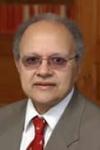 |
Frank Snowden Andrew Downey Orrick Professor of History European social and political history, the history of medicine, the history of epidemics |